Why Textile Manufacturing ERP Software is Best for Apparel Industry? Explore!
The textile industry is extremely large and consists of many businesses running their operations using outdated or traditional methods. In the current fast paced era, the competition is higher than ever and the demands of textile products are growing day by day.
In order to compete in this market, textile businesses need an edge that will boost their overall production and efficiency. This edge can come in the form of textile manufacturing ERP software, which streamlines operations, reduces errors, and enhances productivity.
Let’s first explore the types of manufacturing software available and establish why ERP software is the optimal choice for the textile industry.
Types of Textile Manufacturing Software
Every textile business operates uniquely, with specific challenges and requirements that set it apart. The different types of manufacturing software available today come with distinct features and functionalities tailored to address these diverse business needs.
For instance, some businesses may prioritize real-time production tracking, while others may need more robust inventory management or detailed supply chain oversight.
By understanding the different types of textile manufacturing software, manufacturers can choose the one most suitable for their operations. This knowledge allows them to leverage the right tools to enhance efficiency, streamline workflows, and ultimately, stay competitive in a fast-evolving industry.

1] Enterprise Resource Planning (ERP) Software
ERP software is one of the most comprehensive solutions available, as it integrates all business processes into a single system. This comprehensive nature makes it especially valuable for textile companies that need to streamline complex workflows and manage multiple departments seamlessly.
- Definition: ERP software integrates various business processes into a single system, improving coordination and operational efficiency across departments.
- Main Feature: Provides real-time insights and data accuracy, allowing for better decision-making and operational efficiency.
- Industry Suitability: For textile businesses, ERP software is invaluable because it consolidates data across production, inventory, supply chain, and finance. This integration is crucial for managing the high volume of orders, varied product lines, and detailed tracking that are common in the textile industry.
2] Manufacturing Execution Systems (MES)
MES software is popular for its focus on production floor operations. It’s a great solution for textile manufacturers needing precise control over production processes, as it provides visibility into each stage of manufacturing.
- Definition: MES software monitors and controls manufacturing processes in real time, providing visibility and management of production operations.
- Main Feature: Improves operational efficiency and quality control by monitoring production performance and addressing problems on the shop floor.
- Industry Suitability: In the textile industry, MES software helps manufacturers monitor quality, track production stages, and respond quickly to process issues. This is particularly important for maintaining fabric quality and ensuring that production targets are met efficiently.
3] Supply Chain Management (SCM) Software
SCM software is designed to optimize logistics and the flow of goods, which is critical for textile companies dealing with vast, international supply chains and multiple raw material sources.
- Definition: SCM software coordinates inventories and logistics while managing the movement of goods and materials along the supply chain.
- Main Feature: Reduces lead times and expenses while increasing overall efficiency and responsiveness through supply chain process optimization.
- Industry Suitability: Textile manufacturers benefit greatly from SCM software as it enables better raw material sourcing, inventory management, and logistics coordination—key factors in meeting customer demands quickly and efficiently.
4] Production Planning Software
Production planning software, also known as a production tracking software is highly effective for scheduling and managing production activities. Textile businesses with complex production timelines rely on this software to streamline their workflows.
- Definition: Production planning software helps in scheduling and organizing production tasks, keeping operations efficient and structured.
- Main Feature: Optimizes schedules, resources, and workflows, minimizing bottlenecks and ensuring timely completion of production tasks.
- Industry Suitability: In the textile industry, where demand can fluctuate and custom orders are common, production planning software helps manage timelines and resources efficiently, ensuring that products are completed on time and to specification.
5] Inventory Management Software
Inventory management software is crucial for textile businesses that handle large volumes of raw materials and finished goods. It helps track stock levels, reduces waste, and prevents overstock and stockouts.
- Definition: Inventory management software tracks and manages inventory levels, orders, and stock movements to optimize inventory control.
- Main Feature: Provides real-time stock data, reducing overstock and stockouts, improving order fulfillment, and lowering costs.
- Industry Suitability: Textile companies, which often carry extensive inventories of fabrics, dyes, and materials, benefit from inventory management software’s ability to monitor stock precisely, minimize wastage, and ensure efficient stock handling.
Why the ERP software is the Best Option for the Textile Industry?
A textile manufacturing ERP software is uniquely suited to meet the demands of the textile industry by offering a comprehensive set of tools to manage and integrate all aspects of production, inventory, and supply chain management.
Let’s take a look at the prominent features of an ERP software that makes it the best software for textile manufacturers.
1] Production Planning and Control
A textile manufacturing ERP software solution includes a production planning module that enables advanced scheduling and monitoring of textile production activities, ensuring that everything runs according to plan.
The module helps textile manufacturers to optimize resource allocation, minimize downtime, and improve overall production efficiency. By integrating quality control measures, the manufacturers can ensure that products meet industry standards and customer expectations.


2] Inventory and Warehouse Management
ERP software for textile industry comes equipped with an inventory and a warehouse management module which allows real-time tracking of inventory levels and optimize warehouse space allocation. This helps to manage stock more efficiently and reduce waste.
By preventing both overstocking and stockouts, textile manufacturing ERP software enhances cash flow and reduces inventory holding costs, supporting better warehouse organization and space utilization.
3] Order Management
ERP software streamlines the entire order-to-delivery process, ensuring accurate and timely order fulfillment. It consolidates order information across departments, allowing teams to access up-to-date details on each order, from processing to shipment. This centralized view reduces communication gaps, prevents bottlenecks, and helps resolve issues quickly.
By automating many steps in the order management workflow, textile manufacturing ERP software also reduces the likelihood of manual errors, helping textile manufacturers provide consistent, on-time delivery.


4] Financial Management
ERP software integrates financial data across departments, providing a holistic view of the company’s financial health. With real-time data consolidation, textile companies gain insights into spending patterns, revenue, and profitability, which supports better financial planning and control.
The system also simplifies financial reporting, enabling accurate and timely analysis that helps decision-makers assess performance. Additionally, ERP software aids in maintaining compliance with industry regulations and standards, reducing the risk of financial penalties and ensuring that financial practices align with both industry and regulatory expectations.
5] Supply Chain Management
ERP software facilitates better coordination between suppliers, manufacturers, and distributors, improving the overall supply chain efficiency. By consolidating historical data, textile manufacturing ERP software help manufacturers forecast demand more accurately, allowing them to plan inventory and production schedules based on real market trends.
For textile manufacturers, an optimized supply chain means smoother production cycles, improved response times to changing demands, and ultimately, greater customer satisfaction through timely deliveries.

In a competitive industry like textiles, where production efficiency and quality control are paramount, investing in textile manufacturing ERP software can be a game-changer. It integrates multiple processes, enhances production planning, and provides tools for effective production tracking.
As textile businesses look to modernize and improve their production capabilities, an ERP software solution stands out as the best option to support growth, streamline operations, and deliver high-quality products on time. Embracing this technology can give textile businesses the edge they need to meet rising demand, stay competitive, and achieve sustainable success.

